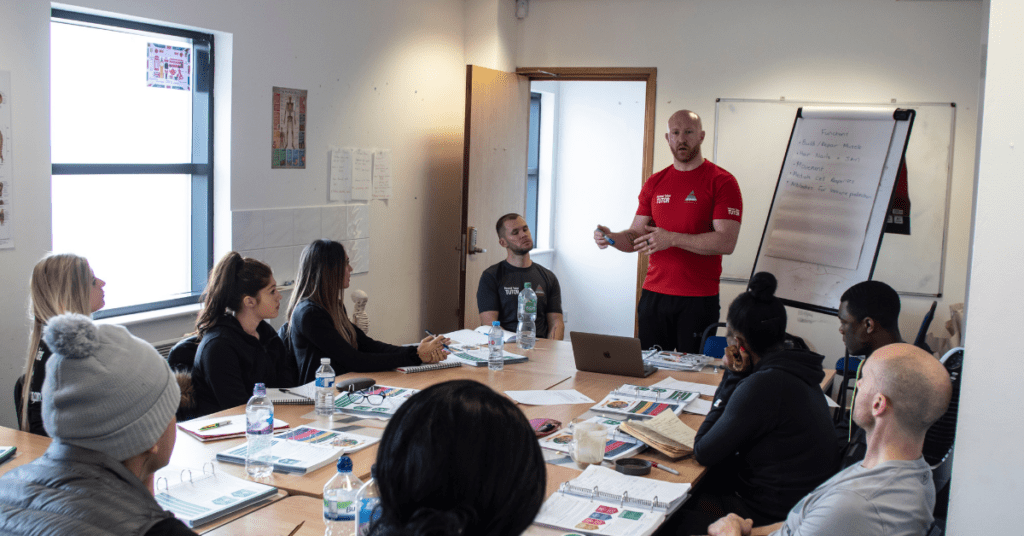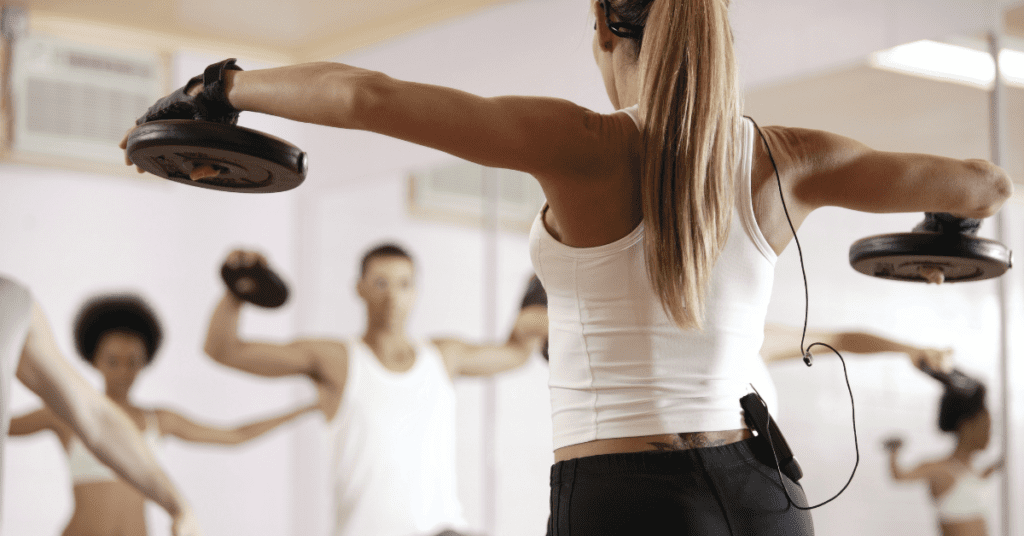One of the best things about being a personal trainer is that, on paper, anybody can embark upon this career. Of course, workouts do not take place on paper. If they did, none of us would ever work up a sweat!
All the same, if you have the personality, dedication and willingness to learn, there is no reason why the dream of becoming a personal trainer is out of reach. This guide will discuss the experience needed to become a personal trainer.
As you’ll see, this is a career path that remains very firmly in the hands of the individual. Coupled with the flexibility that working as a PT can offer and the potential financial rewards and opportunity to change lives for the better, there is no doubt that becoming a personal trainer is a great career.
Education required to be a personal trainer
Many specialist career choices require an equally niche education, often to degree level or above. Aspiring doctors, for example, need to attend medical school. Professional tradespeople will undergo apprenticeships and NVQs. Those looking to work in the banking sector will need to study business and finance at an advanced level.
The good news for anybody with ambitions to become a personal trainer is that no formal degree is required. Theoretically, anybody over the age of 18 can become a personal trainer. However, to be approved for essential insurance policies and be listed on the CIMSPA directory as a fitness professional, you’ll need a Level 3 diploma in personal training.
This qualification is not achieved in a formal education setting. You will not need to enrol in college or university. You can even study while working a full-time job. If you have ever harboured an ambition to be a personal trainer, do not let concerns over education hold you back. The course may not take as long as you’re expecting, and if money is a concern, UK Sports Training offers a range of financing options.
Optional education for personal trainers
- Nutrition, so you can offer dietary advice (be very careful here, though – unless you are a qualified nutritionist, you must make it clear to clients that you are just offering optional nutritional advice, not providing a medical diagnosis or treatment)
- Business practices, including marketing and promotion, so you can enjoy success as a self-employed businessperson
- Advanced literacy and numeracy, so you can fully understand any literature provided during your course
These additional qualifications are not essential to gaining experience as a personal trainer. If you have the time and capacity to study such subjects, though, you may enjoy more success and fulfillment in your work.

Necessary work experience for a personal trainer
Finding a job and kickstarting a career can often leave us facing a catch-22 scenario. Most employers are only looking for team members that boast direct experience. How can anybody be expected to gain experience until somebody takes a chance on them, though?
Working as a personal trainer is a little different. As you will more than likely act as a self-employed individual that enters an arrangement with a local gym or leisure centre, you do not need direct experience to become a personal trainer. You just need the Level 3 qualification we discussed, and of course, clients.
Getting hired as an inexperienced personal trainer is among the most challenging parts of the early years in the job. Personal trainers with direct experience may find it easier to attract new clients, if only because they can rely on all-important word of mouth and personal recommendations from friends and family.
If you have a killer personal trainer CV, a lack of experience should not prevent you from landing your first job. All the same, consider starting a side hustle to gain experience as a fitness professional while you have a reliable income to support you. Alternatively, you could seek work as a fitness instructor, which requires fewer qualifications. You can then observe a potential place of work and build relationships while you study for your Level 3 diploma.
So, as discussed, experience is helpful but not mandatory for success as a personal trainer. In many respects, your physical and psychological conditioning is much more important.

Physical traits required to be a personal trainer
It should go without saying, but we need to be clear here. If you are to be taken seriously as a fitness professional, you need to be in prime physical condition yourself. All the experience as a personal trainer in the world will count for little if you cannot keep up with your clients.
You need to be at least as physically sharp as your strongest, fittest client. You’ll need to demonstrate any exercises that you assign. How do you think the optics will look if you are breathless and struggling after a couple of minutes? The term “do as I say, not as I do” does not apply to personal trainers!
Personality traits required to be a personal trainer
Finally, we need to confirm the necessary personality to be a personal trainer. Much like appearance, your character will dictate how successful you are in your chosen vocation.
As you gain experience as a personal trainer, you’ll develop many of the critical soft skills involved in the role. What is non-negotiable, however, is:
- A friendly, approachable nature, albeit not at the expense of professional boundaries
- Excellent communication skills and the ability to relay information to clients in a clear way
- The ability to motivate and inspire clients to meet their fitness goals
- Transparency and reliability, ensuring a reputation for always turning up to a pre-arranged session
- Boundless patience, as everybody has varying physical skill levels
- An undying passion for all things pertaining to health and fitness!

Do You Have the Skills to Become a Personal Trainer?
How are you feeling about the prospects of becoming a personal trainer? Now that you understand that prior experience is not necessarily required, we hope you consider taking this path. If you’d like to learn more about UK Sports Training and our coaching programs for aspiring PTs, just use the form below to get in touch.

